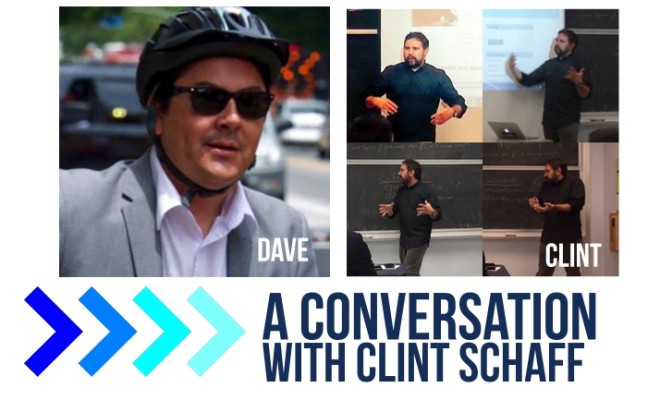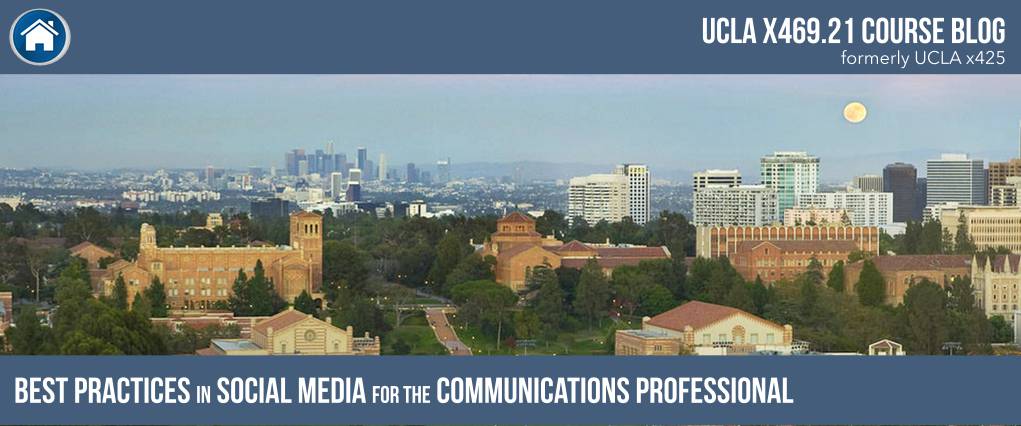
WEEK 1: A Conversation with Guest Speaker Clint Schaff by Dave Sotero
By UCLA X469.21 Student Dave Sotero

Dave Sotero
“I Solve Business Problems”
Digital marketing executive Clint Schaff descended on our UCLA Social Media class like a pinball wizard, his brain pinging like a silver ball across a range of digital media topics.
The man has worked with lots of clients – I mean lots and lots and LOTS of them (an estimated 3,000 over the course of his career), but he reports that what he actually does for them is very simple: “What I do is solve business problems via social media,” he proclaimed. According to Schaff, most people have arbitrary goals for social media, which he says is a losing proposition in the short and long term. Trying to get lots of “likes” on Facebook and/or followers on Twitter doesn’t make any sense unless all those likes and/or followers are tied to specific business goals, Schaff explained.
My new #socmeducla class featured a dynamic presentation from social media guro @clintschaff pic.twitter.com/oO28pNqr4M
— Dave Sotero (@dsotero) October 16, 2015
He went on to advise that the communicator’s job is to make sure his/her work supports the bottom line of the organization, whether it be sales, a good cause or industry stewardship. Find out what the business objectives are, and create inspirational and motivational content that says, “Stick with this product even during the tough times.”
When it comes to social media, content is paramount. Schaff recommends creating a blend of informative, empowering content that will engage social media followers. Turn your message into a graphic and/or video to get even better results.
Schaff had some interesting insights into the different roles communications professionals play in today’s marketplace. For example, he said there are three types of pros doing the same thing: advertising people, PR people and digital people. Regardless of type, their expertise and resources need to be stretched and leveraged to add value in the social media space. The goal is to develop an ability to work comfortably in any of these disciplines to help achieve business goals.
Schaff said brands need to create communities around themselves, but he often sees brands try too hard to be relevant. “Everybody is trying to be Oreo,” he said in reference to the cookie brand’s much-heralded “You can still dunk in the dark” Super Bowl tweet. Rather than trying to be a me-too brand, he said communicators should strive to create content that drives the digital conversation in order to help the brand’s following grow holistically over time.
Having a “playbook” that defines how to talk about the brand and its products is essential. This playbook should detail the “do’s and don’ts” of messaging to the social media audience. If content is too provocative, it may in fact offend a segment you are trying to reach.
If one of your social media team members “goes rogue” because there isn’t a commonly accepted playbook, it can hurt the team and the entire organization. As social media experts, we all have the responsibility to support the corporate brand.




